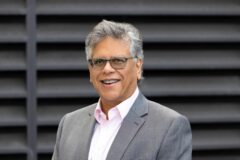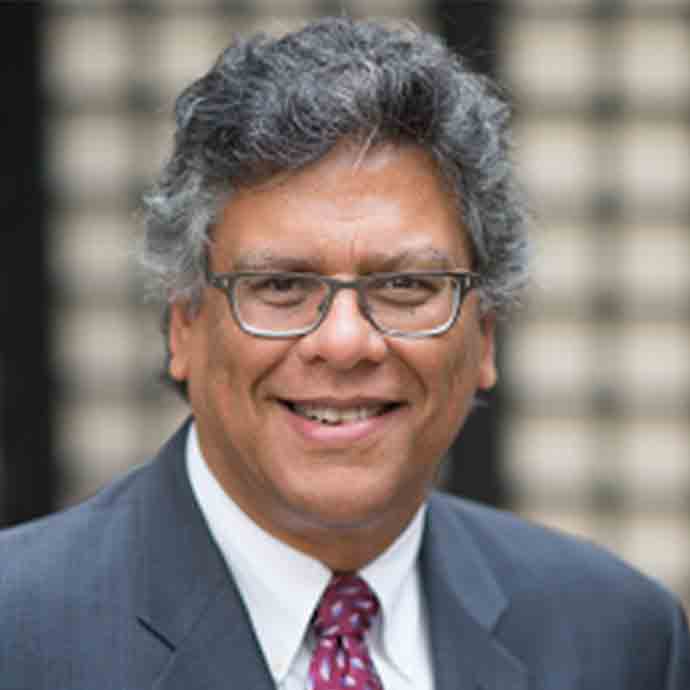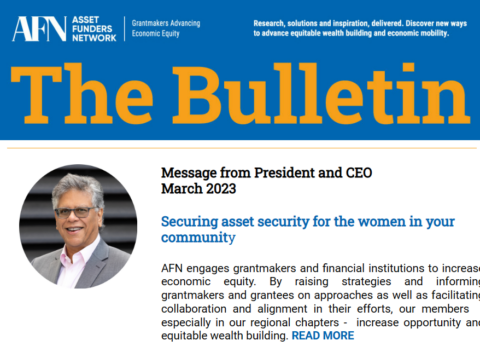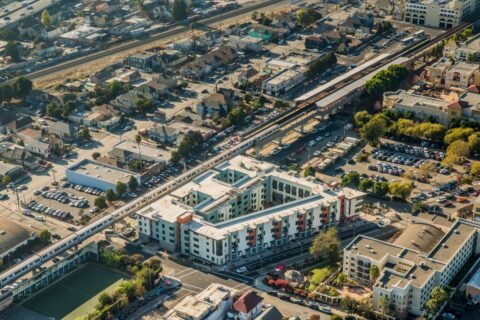FROM THE DIRECTOR
MARCH 2019
You know the facts – the middle class has gotten smaller, economic stress is affecting health, and upward mobility is far more difficult than many of our leaders are willing to admit. Philanthropic institutions and financial institutions within AFN are facing that challenge— exploring the ways to overcome wealth and economic inequity to increase upward mobility.
The data reflecting racial, ethnic, immigrant and gender inequality, highlighted in nearly every AFN brief, is shocking. Left alone, the economy will continue to amplify the current inequitable outcomes, shrinking opportunity and middle class prosperity further. At some level, we all understand, and have experience with, the most common wealth building strategies. They involve:
- building a high credit score, and having available affordable credit,
- having disposable income for savings and to invest in long term wealth building contributing to an account that has growth potential for our children (for college),
- gaining higher education (often to gain the high wages), building equity through home ownership, and
- owning successful businesses.
But each of these has markets that work well for some and fail spectacularly for others, for example:
- Short term expenditures and fees have trumped long-term wealth building;
- Heavily marketed refinancing that reset mortgages delayed, if not prevented equity, building;
- Predatory lending and predatory public policies (fees and fines) have harmed efforts by households, particularly households of color, to build wealth;
- Tax policy neither effectively rewards nor incents wealth building by low and moderate income households; and
- Irrefutable discrimination has constrained and prevented wealth building by Blacks, Latinos, Native Americans, many Asians, and women.
In many communities, the most ubiquitous short-term lenders, mortgage refinancers, and lenders are often the worst choices for financial health due to their exorbitant interest rates and fees. The systemic and policy choices too often being made by the public and private sectors exacerbate the historical wealth building advantages that many white men gained from redlining, Jim Crow, anti-immigrant fervor, gender bias, and other forms of legally enforced discrimination. Taken together, all of these put stress on current household balance sheets and reduce the potential of intergenerational wealth transfers.
In community after community, AFN members understand that most households have goals of economic security; the challenges are whether a meaningful pathway to build assets is available and accessible. The lack of a single strategy that works for every generation is a further complexity. The challenge initially seems daunting.
Yet, AFN members continue to be, and work with, leaders by addressing the underlying issues. By developing actionable approaches making tools and products accessible in community, emphasizing the need to be intentional about advancing equitable outcomes, and funding thought leaders and advocates to change the status quo, philanthropy is exploring, discovering and documenting the approaches needed to expand opportunity and increased prosperity.
Our national conference, Accelerating Ideas Into Action, and our issue briefs, such as those digging into the gender wealth gap including our latest, Clipped Wings, focusing on closing the wealth gap millennial women face by supporting their efforts and testing needed systemic change, are evidence of this collective national effort. The ideas discussed at our Conference will be a catalyst for further action. Add your voice to the dialogue– join us in San Antonio.




